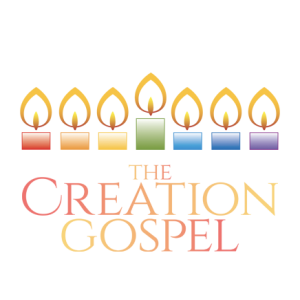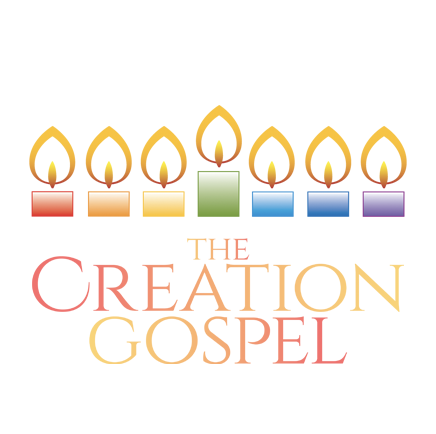Episodes

Sunday Jun 23, 2024
Sunday Jun 23, 2024
A Wedding of WordsPart Two |
|
|
|
Recap: Each year, it is traditional to read the scroll of Ruth at Shavuot. We might say the three scrolls of Ruth, Esther, and Song of Songs are the Bridal Scrolls of return from exile.
What happened to Israel in leaving Egypt at Pesach is what happened to Ruth in leaving Moab and arriving at the House of Bread (Beit Lechem) at Pesach. The Israelites left Egypt as strangers there before she became a Bride, and Ruth left Moab to become a stranger inside the gate of Judah before she became part of the Bride.
Israel and Ruth moved to holier places in their journeys.
The setting of Ruth’s story is Beit Lechem, the House of Bread, where Judah was recovering from the famine. The wilderness also was a place of miraculous, Heavenly Bread and Living Water. A place of covering, anointing, preparation, and clean clothes for a nation of priests. The wilderness was where the Bride was purified with the Torah as she walked as she walked after her Bridegroom, picking up what He dropped for her each morning.
Let’s see if there are wilderness template parallels in the story of Ruth:
If what happened to Israel in the wilderness at Mount Sinai happened to Ruth, then we should be able to find the Ten Words at work in the Megillat Ruth. Last week, we found the first four commandments. This week, we'll find the remaining six:
Fifth Commandment (Ex 20:12)
Honor your father and your mother, that your days may be long upon the land which the Lord God gives you.
Ruth honors her father and mother in a way that many have had to when their parents were idolators and habitual sinners...she doesn't do what they would want, but what her mother "in Torah" would want. Her disobedience to her parents to honor her Heavenly Father is the only way to honor her earthly parents.
Enjoying "long days on the earth" is a kind of security that is thought to allude to eternal security in the Kingdom of Heaven.
In Ruth, the Moses role and priesthood role along with “young men” shifts to Naomi as the friend/mediator between bride and bridegroom, and the young women (na’arot) are emphasized instead of young men (na’arim). Boaz tells Ruth to follow his young women. This shift in emphasis honors the “mother” [in law]. Whereas Moses instructs Israel what to do, Naomi instructs Ruth, who obeys her in all.
Naomi's instructions to Ruth to wash herself and her garments and anoint herself echo Moses instructions to the Israelites to prepare to meet the Bridegroom:
Ruth's obedience also echoes the Israelites':
Sixth Commandment (Ex 20:13)
You shall not murder.
Seventh Commandment (Ex 20:13)
You shall not commit adultery.
Ruth is recognized for her clean conduct:
Ruth does nothing but request redemption and marriage from Boaz, and Boaz in turn protects her reputation by sending her away before she can be seen so that there will not even be an appearance of evil. Boaz makes sure her reputation is not murdered by evil talk. Even before he knows her intentions, Boaz takes steps to protect her reputation and purity:
Boaz even acknowledges that Ruth has pursued a husband for the sake of sanctifying the Name of the Holy One, not simply to have a young handsome husband or a rich one:
Seventh Commandment (Ex 20:13)
You shall not commit adultery.
Going after men opens the door to sexual immorality, akin to idolatry. Let the righteous man notice a young woman’s dedication to the Word first.
Eighth Commandment (Exodus 20:13) You shall not steal [a person].
Ninth Commandment (Exodus 20:13) You shall not bear false witness against your neighbor.
Tenth Commandment (Exodus 20:14) You shall not covet your neighbor’s house, nor his wife, his man-servant, his maid-servant, nor his ox, nor his ass, nor anything that is your neighbor’s [in order to steal it].
Boaz acknowledges that there is another who is legally entitled to redeem Ruth and her deceased husband's property. Rather than make the transaction secretly because he loves Ruth, Boaz takes it to the proper court to make the transaction. He refuses to steal her from one who might take up the claim. He testifies to the truth both to Ruth and before the court.
Ruth is also an honest worker.
Even though Torah gives the poor the right to glean, in her modesty and humility, Ruth asks permission.
And thus, both the Israelites and Ruth married their bridegrooms and Bridegroom, making a covenant of wedding Words, 'til death do us part.
Please SUBSCRIBE to our newsletter to get new teachings. |


No comments yet. Be the first to say something!